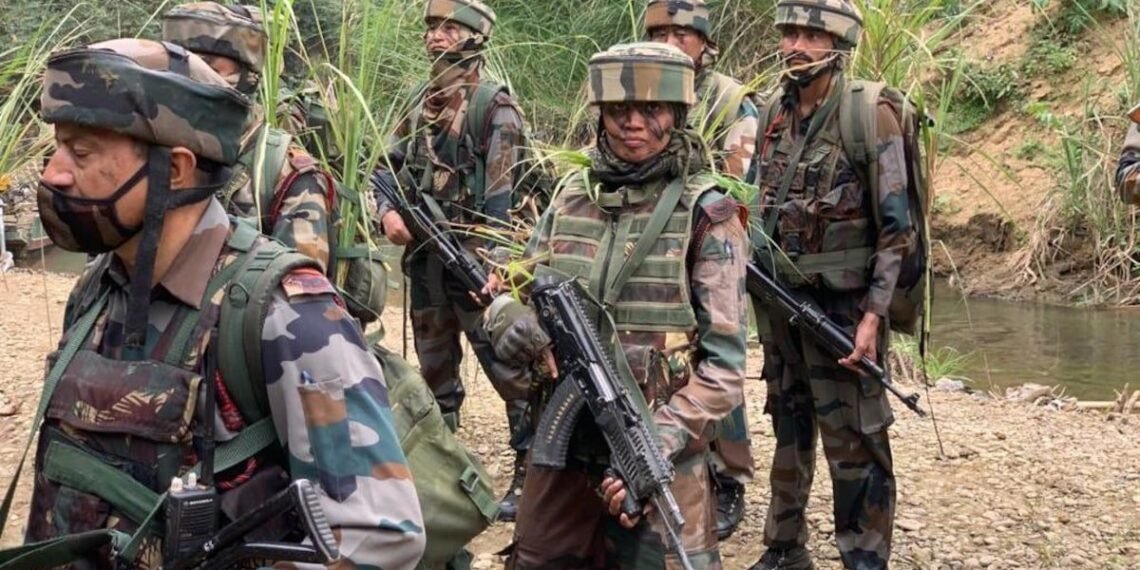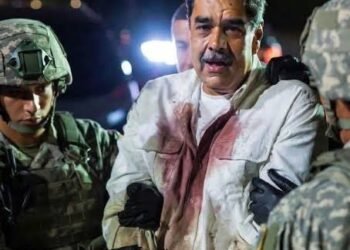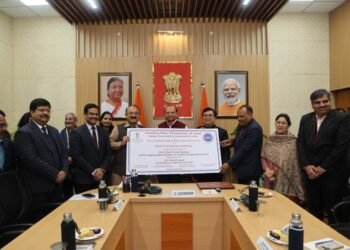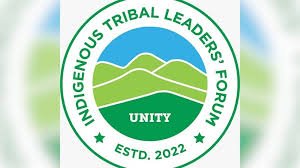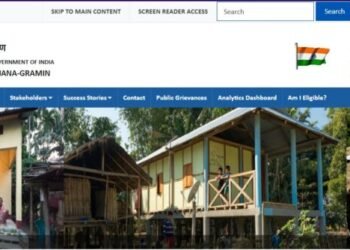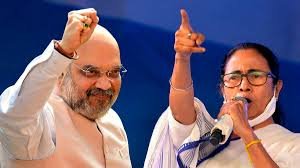Kuki-Zo groups allege the killings reflect a pattern of state impunity under AFSPA, which remains enforced in Kuki-Zo areas but lifted from the Imphal Valley. They say the selective law has created a “two-tier system of justice” in Manipu
BY PC Bureau
November 4, 2025 — The killings of four members of the United Kuki National Army (UKNA) in Manipur by combined forces of the 21 Para Special Forces and the Assam Rifles have reopened deep wounds within the Kuki-Zo community. The encounter, reportedly staged under disputed circumstances, has drawn a blistering response from the Kuki Organisation for Human Rights Trust (KOHUR), and indignation from the Kuki Inpi Manipur (KIM) as well as the Kuki Civil Societies of Churachandpur.
KOHUR’s Stinging Indictment of the State.
According to local sources and preliminary reports, the killings occurred in the early hours of November 2, near Mualkawi village in Manipur’s Churachandpur district. Four members of the United Kuki National Army (UKNA) were reportedly detained and later killed in what security officials described as an “encounter.” Villagers and Kuki civil bodies, however, claim the men were taken alive during a midnight search operation jointly conducted by the 21 Para Special Forces and the Assam Rifles, before being “executed in cold blood” and falsely branded as insurgents.
Eyewitnesses allege that the troops blocked the approach roads, preventing civilians from reaching the site until after dawn, when the bodies were recovered with visible marks of close-range gunfire — a detail that has intensified public anger and calls for an independent investigation.
Assam Rifles Eliminates 4 Kuki Militants In Manipur
4 cadres of the United Kuki National Army (UKNA) killed in an encounter with the Assam Rifles early this morning around 6 a.m. in Churachandpur.
Dead bodies of UKNA Militants were brought to the hospital later. pic.twitter.com/0NHfKouf2w
— India Strikes YT 🇮🇳 (@IndiaStrikes_) November 4, 2025
According to local sources and preliminary reports, the killings occurred in the early hours near Mualkawi village in Manipur’s Churachandpur district. Four alleged members of the United Kuki National Army (UKNA) were reportedly detained and later killed in what security officials described as an “encounter.” Villagers and Kuki civil bodies, however, claim the young men were taken alive during a midnight search operation jointly conducted by the 21 Para Special Forces and the Assam Rifles, before being “executed in cold blood” and falsely branded as insurgents.
Eyewitnesses allege that the troops blocked the approach roads, preventing civilians from reaching the site until after dawn, when the bodies were recovered with visible marks of close-range gunfire — a detail that has intensified public anger and calls for an independent investigation.
From Silence to Solidarity
The Kuki Organisation for Human Rights Trust (KOHUR) was the first to issue a blistering statement, describing the killings as a “grave violation of human rights and international humanitarian norms.” Soon after, the Kuki Inpi Manipur (KIM) — the apex body of the Kuki tribes — expressed “deep shock and indignation”, calling the act a direct assault on peace efforts.
But within 24 hours, the silence that had marked earlier incidents gave way to an unprecedented show of unity.
The Kuki Civil Societies of Churachandpur (KIC, KCA, KWU, KWOHR, KKL, and KSO) issued a joint condemnation, calling the operation a “cold-blooded murder” and announcing a district-wide shutdown and day of mourning.
“We condemn the killing of four cadres of UKNA during a counter-insurgency operation at daybreak,” the statement read. “We appeal for peace but cannot remain silent when lives are taken in such an unjustified manner.”
This unified stance marks a turning point in the Kuki-Zo community’s response to state violence. Earlier incidents — including the Jiribam killings of Hmar village volunteers — had seen fragmented reactions. This time, almost every influential body has spoken in one voice.
KOHUR’s Stinging Indictment
In its detailed release, KOHUR described the killings as part of a “systematic campaign of state-sponsored persecution” against the Kuki-Zo tribal population.
“The cold-blooded execution of these young men is not an isolated event but the continuation of a genocidal campaign aimed at annihilating the Kuki-Zo people from their ancestral lands,” the statement declared.
KOHUR rejected the official narrative that labelled the deceased as “terrorists,” calling it a “fabricated justification for state excesses.”
The organisation drew connections between the UKNA incident and earlier attacks, arguing that radical Meitei militias — including Arambai Tenggol and Meitei Leepun — have been allowed to operate with impunity.
“This crisis is not merely an ethnic clash but a state-directed campaign of ethnic cleansing,” KOHUR wrote, alleging that the Biren Singh-led administration has “forfeited constitutional legitimacy by arming and abetting extremist militias.”
Accusing the State of Complicity
KOHUR’s statement went beyond condemnation — it was a scathing political indictment. It accused the Manipur government and security apparatus of institutional complicity, claiming that no inquiry or accountability process had been initiated in any of the past killings of Kuki civilians.
“The government’s silence and refusal to hold any security personnel accountable point to a structure of impunity that has normalised extrajudicial killings,” the group stated.
It also referenced the Jiribam incident, where Hmar volunteers were shot dead by central forces, calling it a “mirror image of the UKNA killings.”
Selective AFSPA, Unequal Justice
Perhaps the most damning part of KOHUR’s release was its focus on the Armed Forces (Special Powers) Act (AFSPA). The group accused the state of selective enforcement, noting that AFSPA remains in force in tribal hill areas while being lifted from Meitei-dominated Imphal Valley.
“This discriminatory exemption creates two legal systems — one of privilege and another of persecution,” KOHUR said.
“It exposes how state power and military authority are disproportionately concentrated in tribal territories, enabling unchecked violence and arbitrary detentions.”
By keeping AFSPA alive only in hill districts, KOHUR argued, the government had “codified inequality” and legitimised the ongoing militarisation of Kuki-Zo lands.
READ: CJI Gavai Accuses Centre of ‘Playing Tactics’ to Avoid His Bench
‘Collapse of Constitutional Governance’
KOHUR’s statement concluded that Manipur is witnessing a “collapse of constitutional governance.”
“Over 60,000 Kuki-Zo civilians remain displaced, their homes destroyed, their lands seized,” it said. “Judicial, administrative, and security mechanisms have completely failed to uphold the rule of law.”
In its international appeal, KOHUR urged the United Nations and global human rights institutions to intervene, calling for:
- An independent international investigation into all extrajudicial killings since May 2023.
- Accountability and sanctions against officials complicit in rights violations.
- The dismantling of Meitei militias and recovery of looted arms.
- UN or international observers to monitor civilian safety.
- Recognition of the Kuki-Zo people’s right to self-governance and separate administration.
The statement ended with a chilling warning:
“Without immediate international intervention, Manipur risks permanent ethnic segregation and a deepening human rights catastrophe.”
Kuki Inpi’s Call for Restraint and Justice
The Kuki Inpi Manipur (KIM) echoed the outrage but in measured terms. Its statement expressed “profound pain and outrage” while reaffirming commitment to peaceful dialogue with the Government of India.
“Continued targeted actions against our community severely undermine trust and jeopardize peace efforts,” the KIM said.
“Our patience should not be mistaken for weakness or acceptance of injustice.”
KIM’s appeal to “exercise utmost sensitivity and impartiality” was seen as an attempt to prevent escalation while preserving the moral authority of the Kuki-Zo cause.
Kuki Civil Societies’ United Front
For perhaps the first time since the 2023 ethnic conflict began, the Kuki Civil Societies of Churachandpur — a federation that includes women’s groups, students’ unions, and local leadership — came together with a joint resolution.
Signed by leaders from the Kuki Inpi Churachandpur (KIC), Kuki Chief Association (KCA), Kuki Women Union (KWU), Kuki Women Organisation for Human Rights (KWOHR), Kuki Khanglai Lawmpi (KKL), and Kuki Students’ Organisation (KSO), the statement called for:
- A total shutdown in Churachandpur district on the day of the funeral,
- A public day of mourning, and
- Renewed pressure for a Separate Administration as a political solution.
“We condemn all forms of violence and urge the Government of India to urgently work toward a political solution,” the joint statement read. “Only a separate administrative arrangement can restore lasting peace and normalcy.”
This rare convergence of voices has given the movement renewed moral and political momentum.
A Community on Edge
The UKNA killings have rekindled old fears among the displaced Kuki-Zo population, many of whom live in makeshift relief camps. For them, each new “encounter” feels like a reminder of their vulnerability.
“When you lose your home, your land, and now your people — you start to wonder what’s left to protect,” said a 23-year-old camp volunteer in Lamka.
Civil society leaders say that while unity has been rekindled, the cost of silence remains high. Many smaller organisations had previously stayed quiet to avoid political backlash or accusations of sympathising with militants.
“But this time, the evidence and pain are undeniable,” said a local pastor. “The community has realised that silence only feeds impunity.”
The Larger Picture
Analysts see the unified outcry as a political inflection point. What began as a human rights response is now evolving into a collective demand for justice, equality, and political autonomy.
“Manipur’s tribal population has reached a breaking point,” said a senior human rights researcher based in Imphal. “The UKNA killings have crystallised everything — the fear, the anger, and the exhaustion.”
As dusk falls over Churachandpur, the hills are once again under curfew. The voices calling out — from human rights desks to church pulpits — carry both grief and resolve.
The community’s message is clear: the killings were not an isolated “operation,” but a moral outrage — one that has united a fractured people around a single demand for truth


